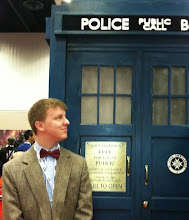As I write this, we are now 27 days into 2014 which means
thanks to the effect of New Year’s consumption, the polar vortex freezing our
brain cells and probably something that has to do with Rob Ford, we can’t
remember 2013. Every publication wraps-up the year with a billion slideshow
articles they turn in before winter break because they’re pretty positive
nothing will happen during those last two weeks.
Then we’re done! No more 2013! Now it’s time to focus on
“films” like I, Frankenstein
and….what the hell is The Nut Job?
Today I’m going to go against the grain and write about the best of cinema from
last year even though we are almost a month into its predecessor. I can never
do it at the end of December because there are too many movies that I want to see
before I write my (pseudo) definitive list.
This year I want to go even crazier. I want to talk about my
Top 61 films because I see this as one of the best years in cinema I’ve ever
experienced. Also I think the film market is changing. Right now you have
access to amazing films so you don’t have to go see The Legend of Hercules. There are more options!
Last thing before this gets any longer (Ha!), even though I
waited to see more movies, that doesn’t mean I saw everything. I still missed About Time, After Tiller, Ain’t Them
Bodies Saints, Bastards, Best Kept Secret, Beyond the Hills, Caesar Must Die, Clear History, Deceptive
Practice, Ernest & Celestine, Escape From Tomorrow, Go For Sisters, The Hunt, Night Across the
Street, Paradise: Love, Pieta, Post Tenebras Lux, Sightseers, Smash & Grab:
The Story of the Pink Panthers, Something in the Air, Starbuck, Tim’s Vermeer,
A Touch of Sin and You Ain’t Seen
Nothing Yet. I’ll get to those…one day.
Last first thing, why 61 films? Because I was going to do 60
and then I realized I forgot to put one on my list halfway through writing
this. Why even have this many? Make it to the end of the article, but now let’s
get started…
#61
How to Make Money
Selling Drugs
This movie is so obviously influenced by The Wire it’s even bold enough to have
scenes from the HBO masterpiece and interviews with David Simon. The gimmick of
making this movie a “How To” guide is a lot of fun and serves as a nice
counterbalance to the depressing financial statistics about how the decades long
War on Drugs has severely damaged America.
Currently Available on DVD.
#60
Hey Bartender
Another year, another documentary about an awesome niche
world I’ve never seen before. This movie shows the cultural rise of the
cocktail and how the right bartender could be just as exciting as the brilliant
new chef. Always cool and slick, this brings such a nice allure to this world
and the work it takes to make a successful environment.
Currently Available on iTunes







